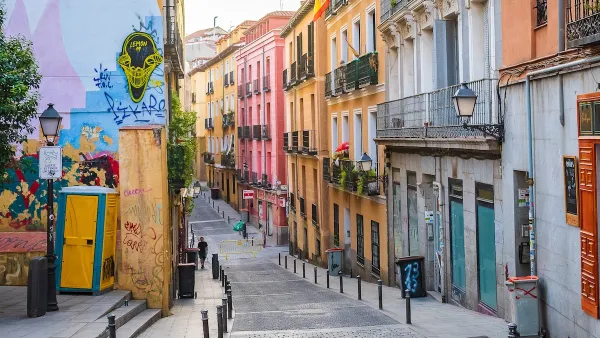Drawn to the Galapagos Islands by their booming tourism industry, thousands of poor Ecuadorians are being booted from the sensitive ecosystem to counteract the negative impact of the rising human population.
"The burgeoning human population of the Galápagos, which doubled to about 30,000 in the last decade, has unnerved environmentalists. They point to evidence that the growth is already harming the ecosystem that allowed the islands' more famous inhabitants - among them giant tortoises and boobies with brightly colored webbed feet - to evolve in isolation before mainlanders started colonizing the islands more than a century ago.
The growth has become enough of a threat to the environment that even the government, which still welcomes growth in the tourism industry, has expelled more than 1,000 poor Ecuadoreans in the past year from a province that they feel is rightfully theirs, and it is in the process of expelling many more."
Locals there are expressing outrage over the new policy, which they say places tourist experiences over the wellbeing of poor Ecuadoreans.
FULL STORY: To Protect Galápagos, Ecuador Limits a Two-Legged Species

Planetizen Federal Action Tracker
A weekly monitor of how Trump’s orders and actions are impacting planners and planning in America.

Map: Where Senate Republicans Want to Sell Your Public Lands
For public land advocates, the Senate Republicans’ proposal to sell millions of acres of public land in the West is “the biggest fight of their careers.”

Restaurant Patios Were a Pandemic Win — Why Were They so Hard to Keep?
Social distancing requirements and changes in travel patterns prompted cities to pilot new uses for street and sidewalk space. Then it got complicated.

Platform Pilsner: Vancouver Transit Agency Releases... a Beer?
TransLink will receive a portion of every sale of the four-pack.

Toronto Weighs Cheaper Transit, Parking Hikes for Major Events
Special event rates would take effect during large festivals, sports games and concerts to ‘discourage driving, manage congestion and free up space for transit.”

Berlin to Consider Car-Free Zone Larger Than Manhattan
The area bound by the 22-mile Ringbahn would still allow 12 uses of a private automobile per year per person, and several other exemptions.
Urban Design for Planners 1: Software Tools
This six-course series explores essential urban design concepts using open source software and equips planners with the tools they need to participate fully in the urban design process.
Planning for Universal Design
Learn the tools for implementing Universal Design in planning regulations.
Heyer Gruel & Associates PA
JM Goldson LLC
Custer County Colorado
City of Camden Redevelopment Agency
City of Astoria
Transportation Research & Education Center (TREC) at Portland State University
Camden Redevelopment Agency
City of Claremont
Municipality of Princeton (NJ)





























